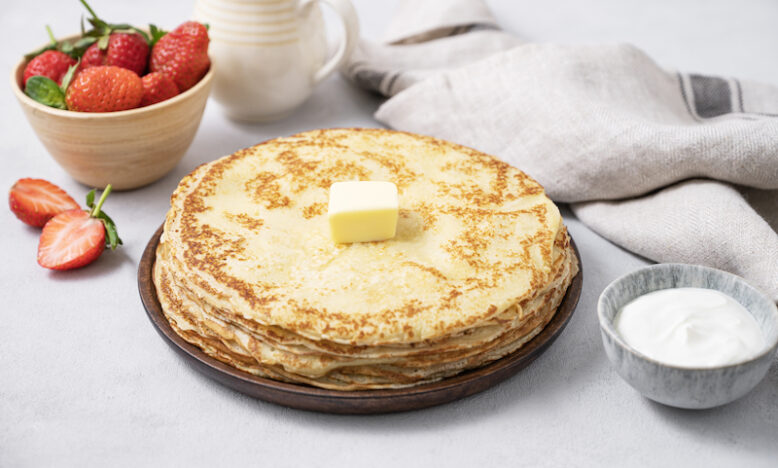What do Italians call that deliciously creamy substance we love to spread on toast in the morning? The answer is burro (butter)!
burro
butter

Burro, derived from the Old French burre, traces its origins to the Latin butyrum and the Greek bṹtyron, a combination of bûs (cow) and tyrós (cheese) according to the Devoto-Oli Italian Dictionary.
It is a masculine noun, so it takes the following definite and indefinite articles:
- il burro = the butter
- i burri = the butters
- un burro = a butter
- dei burri = (some) butters
Vuoi che spalmi un po’ di burro sul pane?
Do you want me to spread some butter on the bread?

For Spanish speakers, it’s important to note that burro in Italian has no connection to the Spanish burro, which means donkey! This is a classic example of false friends between these two Romance languages.
Some different kinds of burro include:
- burro d’arachidi = peanut butter
- burro vegetale = vegetable butter / margarine (you can also say margarina in Italian)
- burro all’aglio = garlic butter
- burro montato = whipped butter
Al burro is used to say that something contains or is made using butter. For example, biscotti al burro are butter cookies, and pasta al burro is pasta with butter.
If you enjoy cooking, it may be useful to know that a noce di burro is a knob of butter whereas a panetto di burro is a stick of butter.
Burro di cacao is the Italian word for cocoa butter, but it is also the name they give to lip balm or chapstick, regardless of its components. You may also hear just burro cacao without the preposition di.

In addition to its literal meaning, burro can also be used figuratively to describe food that has a soft, melt-in-your-mouth quality.
Questa bistecca è un burro!
This steak melts in your mouth!
A somewhat cheeky expression originating from Brescia is col culo nel burro, which humorously describes someone as being born lucky, literally translating to “with their bum in butter.” It’s akin to the English idiomatic expression “to be born with a silver spoon in one’s mouth.”
The idiom dare un po’ di burro a qualcuno (literally “to give someone some butter”) is used when you act obsequiously towards someone in order to obtain something you want.
A more common expression that may sound familiar is avere le mani di burro, literally translating to “to have hands of butter” or “butterfingers.”
Non darlo a Gianni – ha le mani di burro!
Don’t give it to Gianni – he has butterfingers!
Some related terms include burroso (buttery), burriera (butter dish), imburrare (to butter / grease), coltello da burro (butter knife) and zangola (butter churn).
Heather Broster is a graduate with honours in linguistics from the University of Western Ontario. She is an aspiring polyglot, proficient in English and Italian, as well as Japanese, Welsh, and French to varying degrees of fluency. Originally from Toronto, Heather has resided in various countries, notably Italy for a period of six years. Her primary focus lies in the fields of language acquisition, education, and bilingual instruction.


